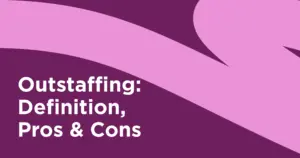In today’s ever-changing job market, hiring the right talent isn’t just about degrees or past job titles anymore. Companies are now looking at what matters—a candidate’s skills. This new approach, called skill-based hiring, is transforming the way businesses recruit, creating more opportunities and building stronger teams. Let’s dive into what it means, why it’s important, and how you can make it work for your company.
What Is Skill-Based Hiring?
Skill-based hiring is a recruitment method that puts a spotlight on a candidate’s abilities and know-how rather than focusing on their formal qualifications like degrees or years in a role. Simply put, it’s about what someone can do instead of where they’ve been.
For example, rather than asking for a college degree for a tech role, you might look for hands-on experience with coding languages, problem-solving capabilities, or creative thinking. Tools like coding tests, portfolios, and real-world challenges are great ways to evaluate these skills.
Why Does Skill-Based Hiring Matter?
1. Expand your Talent Pool
By moving away from strict degree or experience requirements, you open the door to a much broader group of candidates. Think about self-taught experts, career changers, or people with non-traditional education—all of whom might have exactly the skills you need.
A LinkedIn report found that 45% of hiring managers say skill-based hiring helps them discover hidden talent.
2. Reduces Hiring Bias

When you focus on skills rather than where someone went to school or worked before, you help reduce unconscious bias. This creates a fairer, more inclusive hiring process.
3. Improves Job Performance
Hiring based on skills means bringing in people who can hit the ground running. A World Economic Forum study found that companies using skill-based hiring saw a 25% boost in productivity.
4. Keeps You Ahead of Industry Trends
With industries changing faster than ever, skill-based hiring ensures your team has the latest expertise. Instead of outdated credentials, you’re hiring for current, relevant capabilities.
How to Get Started with Skill-Based Hiring
Step 1: Define Key Skills for Each Role
Start by identifying the must-have skills for the job. Be specific. Instead of generic descriptions, think about the tools, techniques, and qualities your ideal candidate needs.
For example:
- A marketing manager might need to know SEO tools, content creation, and analytics.
- A project manager should excel at teamwork, time management, and risk assessment.
Step 2: Rewrite Job Descriptions
Make job postings more focused on skills than degrees or years of experience. Replace phrases like “5+ years required” with “experience managing cross-functional teams” or “proficiency with Asana or Jira.”
Pro Tip: Websites like O*NET Online can help you pinpoint the most relevant skills for any role.
Step 3: Use Skills Assessments
Add practical evaluations to your hiring process. This can include:
- Work samples or projects.
- Technical tests for specialized roles.
- Real-world scenarios to test problem-solving skills.
Platforms like HackerRank and SkillsTrader are great tools for this step.
Step 4: Train Your Hiring Team
Your hiring managers need to be on board. Provide them with training to assess skills effectively and fairly. Help them understand how to evaluate work samples, conduct skill-based interviews, and use the right tools.
Step 5: Leverage Technology
Use modern applicant tracking systems (ATS) that prioritize skills over resumes. These systems can scan applications for skill keywords and rank candidates accordingly.
Popular tools include:
Step 6: Review and Improve
Skill-based hiring isn’t a one-and-done process. Keep an eye on your results. Look at metrics like time-to-hire, employee retention, and candidate feedback. Adjust your approach as needed to keep improving.
Challenges and How to Overcome Them
Challenge 1: Resistance to Change
People who are used to traditional hiring might be skeptical. Show them success stories and highlight the long-term benefits of focusing on skills.
Challenge 2: Creating Good Assessments
Building reliable skills tests can feel overwhelming. Partner with subject matter experts or use tools designed for this purpose to make it easier.
Challenge 3: Balancing Culture Fit with Skills
Skills are crucial, but cultural alignment also matters. Combine skill assessments with interviews that explore a candidate’s values and approach to teamwork.
Real-Life Success Stories
Here’s how some leading companies are thriving with skill-based hiring:
- IBM: Their “New Collar Jobs” initiative focuses on hiring for skills rather than degrees. This approach now accounts for 15% of their hires.
- Google: Known for its challenging skills tests, Google emphasizes what candidates can do, not their academic background.
- Deloitte: Their “Pathways” program prioritizes skills, resulting in a more diverse and innovative workforce.

Conclusion:
Skill-based hiring isn’t just a buzzword; it’s the future of recruitment. By focusing on what people can do, you’ll create a stronger, more dynamic team that’s ready to tackle today’s challenges.
Looking for a partner to help you implement skill-based hiring?
Yoocollab specializes in outstaffing and outsourcing services, connecting businesses with top-tier talent worldwide. Let’s work together to bring the right skills to your team.
Ready to make the shift?
Contact Us today and start building your skills-first dream team!




